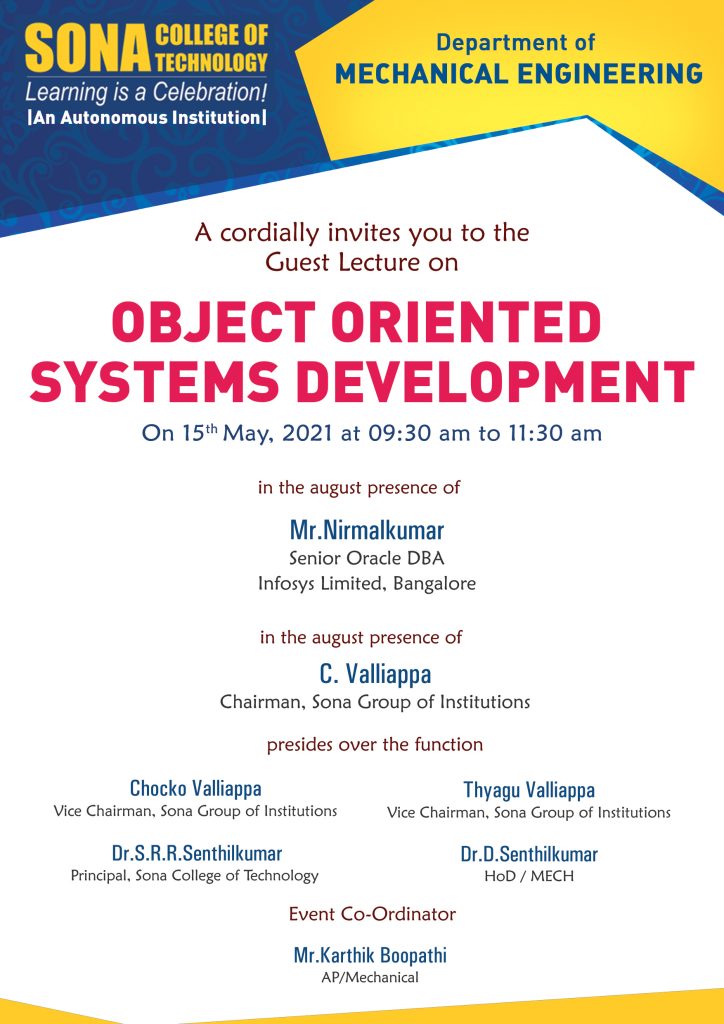Date/Time
Date(s) - 15/05/2021
All Day
Categories
Resource Person:Mr.Nirmalkumar,Senior Oracle DBA,Infosys Limited, Bangalore.
Object-oriented systems development (OOSD) is an approach to software design and development that emphasizes the use of objects to represent real-world entities and the interactions between them. The objects in OOSD are instances of classes, which define the attributes and behavior of the objects.
The OOSD approach is based on the principles of encapsulation, inheritance, and polymorphism. Encapsulation involves grouping related data and functions into objects, which helps to maintain data integrity and reduce complexity. Inheritance allows objects to inherit properties and methods from other objects, promoting reuse and reducing redundancy. Polymorphism allows objects to take on multiple forms, making it possible to write more generic and flexible code.
OOSD is often used in large-scale software development projects, where the complexity of the system requires a structured and organized approach. The process typically involves analysis, design, implementation, testing, and maintenance. During the analysis phase, requirements are gathered and use cases are developed. In the design phase, the system architecture is defined and class diagrams are created. In the implementation phase, the code is written and tested. Finally, during the maintenance phase, the software is updated and modified as needed.
One of the key benefits of OOSD is that it promotes modularity and extensibility, allowing developers to more easily add new features and functionality to the system. Additionally, OOSD promotes code reusability, which can lead to faster development times and a reduction in errors. However, OOSD can be more complex and time-consuming compared to other development approaches, and it requires a high degree of technical expertise to implement effectively.



